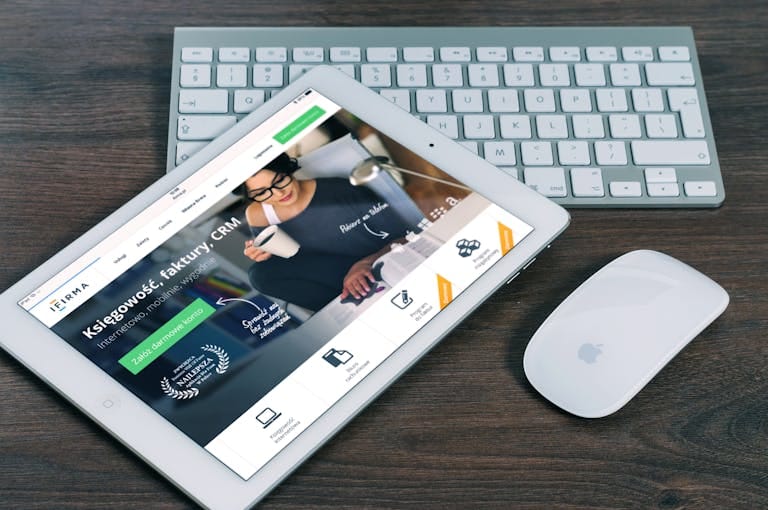How to Turn Past Remote Experience Into a New Career Path
Summary
- Your remote work experience is more valuable—and more versatile—than you think.
- The key to a new career path is reframing your remote accomplishments, not just listing job titles.
- Remote-ready skills like self-management, digital communication, and results tracking are in demand in every industry.
- Top remote-friendly job boards and learning platforms (FlexJobs and Educative) can accelerate your pivot.
- Real-life examples show how professionals have repositioned remote work to break into project management, content strategy, consulting, and more.
Contents: What You’ll Learn
How to Turn Past Remote Experience Into a New Career Path
Remote work isn’t just a trend—it’s now a pillar of the global economy. Millions of professionals, from entry-level to executives, have built substantial careers entirely online. But what if you want to pivot—to level up, change industries, or simply find a new challenge? The challenge for many isn’t lack of experience—it’s knowing how to reframe what you’ve already done so employers and clients see your true value.
The Hidden Value of Your Remote Experience
Whether you led virtual teams, managed projects from home, or delivered results in a solo capacity, your experience has already taught you skills that most companies want:
- Self-motivation and discipline
- Results-focused work ethic
- Comfort with digital tools (Slack, Zoom, Asana, Notion, etc.)
- Cross-time-zone communication
- Adaptability in changing environments
A Harvard Business Review feature notes that, in 2025, employers rate “evidence of successful remote work” as a stronger hiring signal than almost any credential for roles involving autonomy or project leadership.
🚀 FlexJobs Subscription
Curated remote job board with premium listings.
30% off for RWC readers – $29.95.
Get This Deal
🚀 Avast Premium Security
Security suite to keep your remote work devices protected.
Save up to 40% today – $39.99.
Get This Deal
🚀 NordVPN Subscription
VPN for secure remote work connections and privacy.
Up to 63% off annual plans – $59.88.
Get This Deal
“I thought my freelance years would be a disadvantage. Instead, they turned out to be the strongest part of my application.”
—Rachel, now remote operations manager
Why Most Resumes Undersell Remote Work
The old way of listing job titles, companies, and dates simply doesn’t cut it. The Muse reports that candidates who explain the impact and remote-specific context of their work are 2x more likely to land interviews than those who don’t.
Compare:
| Old Resume Style | Modern Remote Resume |
|---|---|
| “Customer Service Rep, 2020–2023” | “Remote Customer Service Rep: Managed 1,500+ tickets/mo via Zendesk, reduced response time by 30% across global time zones, onboarded and mentored 4 new hires via Slack and Zoom.” |
| “Marketing Specialist, 2021–2024” | “Remote Marketing Specialist: Led distributed team campaign, increased email engagement by 24%, collaborated across 5 time zones using Asana and Loom.” |
(Table 1. Reframing Past Remote Roles for Maximum Impact)
Top Remote-Ready Skills—And How to Spotlight Them
According to Monster, the most sought-after remote-ready skills in 2025 include:
- Autonomous project management: Planning, executing, and reporting on tasks without daily oversight.
- Digital communication: Running effective meetings, communicating progress, and solving problems via chat, email, or video.
- Process documentation: Creating clear SOPs or training docs for remote teams.
- Tech stack literacy: Comfort using (and learning) new tools quickly.
Action Step:
On your resume and LinkedIn, explicitly label relevant roles as “Remote,” and give examples that show you can thrive in digital-first environments.
How to Build a “Remote Experience” Career Story
Employers want a clear, confident narrative. Your story should connect the dots between your remote experience and their business needs. Use a 3-step structure:
- Highlight the Challenge:
“Led a distributed customer service team during a rapid transition to remote.” - Describe the Solution/Action:
“Implemented asynchronous workflows with Notion and video SOPs.” - Show the Results:
“Cut onboarding time by 40% and maintained 95%+ CSAT across 3 countries.”
Pro tip: Use metrics, even rough ones. Indeed and CNBC both confirm that even “soft” numbers (e.g., “served clients in 7 time zones”) boost your credibility.
Leveraging Job Boards and Learning Platforms
Job Boards:
- FlexJobs curates remote-first opportunities that recognize remote experience as a differentiator, not just a checkbox.
- Remote.co and We Work Remotely also allow filtering for “experience required” and “industry pivot.”
Learning Platforms:
- Educative offers short, project-based courses to help you add tech or leadership skills fast. Many courses come with portfolio projects and job placement resources.
Real-Life Example: Consulting From a Remote Resume
Liam, a former remote customer support lead, was unsure if he could break into consulting. By reframing his experience—showing how he solved onboarding issues and implemented ticketing automation—he landed his first freelance project with a healthtech startup, then built a portfolio from there.
Mapping Your Remote Achievements to New Industries
Remote work is your secret weapon for career change. The key is translating your experience—no matter how niche—into achievements and language that resonate with new employers. Whether you’re targeting tech, healthcare, project management, or creative roles, a little reframing goes a long way.
How to Identify Industry-Ready Achievements
1. Find the “Universal” Value in Your Experience
Nearly every remote job develops skills that cross industry lines:
- Managing projects and deadlines without direct supervision
- Coordinating teams and clients across time zones
- Using digital tools to solve real-world problems
- Creating and refining processes that work for distributed teams
Action: List 3–5 major achievements from your last remote role. For each, ask:
How did this benefit my team, customers, or company?
What tools or approaches did I use that are valued elsewhere?
Example:
- Led weekly Zoom standups for global team (applies to any virtual leadership role)
- Built SOPs in Notion (process improvement = valuable everywhere)
- Reduced churn by 18% by streamlining onboarding (customer experience = universal)
Resume and LinkedIn Templates for Remote Career Pivoters
Remote [Role] at [Company]
[Dates]
- Delivered [result] by [action], using [tool/skill]
- Collaborated with [team/customers] across [locations/time zones]
- Implemented [project/process] that improved [outcome]
Before:
“Managed social media accounts and responded to client inquiries.”
After:
“Remote Social Media Coordinator: Led content strategy for distributed brand team, increased engagement 32% across 4 time zones using Buffer, and launched weekly analytics reports to inform campaign pivots.”
LinkedIn About Template:
“Experienced remote [role] with proven results in [key skills]. Passionate about leveraging digital collaboration and project management to drive outcomes for [target industry/role]. Open to new challenges in [desired field].”
Table: Translating Remote Experience Into Industry Opportunities
| Remote Achievement | Universal Skill | Target Industry/Role |
|---|---|---|
| Managed client projects via Asana | Project management | Tech, SaaS, agency, consulting |
| Led onboarding sessions over Zoom | Virtual training, communication | HR, EdTech, healthcare |
| Built process docs in Notion | Process improvement | Operations, admin, consulting |
| Created customer tutorials (Loom, Canva) | Digital content creation | Marketing, EdTech, support |
| Coordinated with teams in 5+ time zones | Cross-cultural collaboration | Global companies, remote ops |
| Automated daily status updates (Zapier) | Tech tool adoption | SaaS, e-commerce, operations |
(Table 2. Mapping Remote Skills to New Career Paths)
Using Storytelling in Interviews
Behavioral interviews are standard for remote-first roles. Employers want to hear not just what you did, but how you handled the challenges of distributed work.
STAR Technique Refresher:
- Situation: Set the scene—what was the challenge?
- Task: What was your responsibility?
- Action: What steps did you take?
- Result: What happened as a result?
Example Interview Answer:
“In my previous remote role, our team struggled with slow onboarding. I designed a digital training series using Loom and Notion, which reduced onboarding time by 40%. As a result, new hires became productive a full week earlier, and retention improved by 15%.”
Upskilling to Fill Industry Gaps
Even the best remote background sometimes needs a boost. Online learning can fill in any gaps fast:
- Educative offers micro-courses in tech, product management, and data analytics—all with hands-on projects you can showcase.
- FlexJobs curates remote jobs that value practical skill application over degrees.
Tip: Choose one or two targeted certificates rather than a long, generic program. Showcase them on your resume and LinkedIn, and reference them in interviews to demonstrate your commitment to your new path.
Building a Bridge to Your Target Industry
- Join professional communities in your target field (Slack groups, LinkedIn, industry forums).
- Volunteer or freelance for short-term projects to gain relevant experience (even a small project can become a talking point in interviews).
- Seek informational interviews with people in your desired industry to understand trends and tailor your pitch.
Pivot with Confidence
Ready to take the next step?
- Find remote-first jobs designed for career changers on FlexJobs.
- Add in-demand skills with project-based learning from Educative.

Building Credibility, Portfolio, and Your Network After a Remote Pivot
Reframing your remote experience is just the first step. To truly launch a new career path, you need to prove yourself in a new field—even before you have an official job title. In 2025, the fastest-growing remote professionals are those who blend achievement, visibility, and real connections.
Building Credibility Fast: Show, Don’t Just Tell
Employers want evidence. The good news: remote work naturally lends itself to tangible outputs and digital “proof.”
Ways to Build Instant Credibility:
- Showcase Your Work:
- Create a portfolio site (no code required—use Notion, WordPress.com, or About.me) to display sample projects, case studies, and testimonials.
- Upload project docs, client feedback, or even anonymized Slack screenshots to show collaboration and outcomes.
- Earn Micro-Credentials:
- Complete targeted courses (e.g., Educative) and display certifications on LinkedIn and your portfolio.
- Highlight project-based badges (Google, Coursera, or LinkedIn Learning are also widely recognized).
“What sealed the deal for me wasn’t my resume—it was a simple project walkthrough I shared with my interviewer.”
—Liam, remote project analyst (2025)
Strategic Networking for Remote Career Changers
You don’t need to be a “networking pro”—but a few warm connections can make a huge difference.
Action Steps:
- Reach out for informational interviews with professionals already working in your target role or company.
- Join remote-first communities—Slack, Discord, or LinkedIn groups in your new industry. (Examples: Superpath for content, TechLadies, Remote Work Hub)
- Participate in public Q&A (e.g., LinkedIn comments, Twitter/X spaces, industry forums).
Share insights from your remote experience, not just job-search asks.
“Most people want to help. I landed my first freelance contract after a single coffee chat on Zoom.”
—Rachel
Portfolio Hacks: Prove Your Skills (Without a New Title)
You don’t need years of formal experience in your new field to stand out. Use small wins to create momentum.
Table: Portfolio-Building Strategies for Remote Pivoters
| Strategy | How to Execute | Proof Point |
|---|---|---|
| Freelance for 1-2 projects | Use FlexJobs to find contract gigs | Client testimonials, deliverables |
| Volunteer for a nonprofit | Offer to build a process doc, manage a campaign, or train staff | Finished work, feedback letter |
| Create a “sample project” | Write a case study or build a sample onboarding flow | Link or file to share |
| Collaborate on open-source | Join a GitHub or Notion-based project | Contribution logs |
| Teach a micro-workshop online | Host a Zoom or Loom training for peers | Recording, attendee reviews |
(Table 3. Quick Portfolio Hacks for Remote Career Pivoters)
Building Your Remote Reputation
Reputation in remote work spreads fast—often through visible results and peer referrals.
- Ask for LinkedIn recommendations from former managers or clients, especially those who can speak to your remote skills.
- Share learnings and tips on LinkedIn, a blog, or community threads. “Giving away” knowledge signals both expertise and collaborative spirit.
- Maintain a pattern of visible, positive contributions—even one public win can lead to multiple interviews or freelance offers.
Common Mistakes to Avoid
- Hiding remote experience: Failing to highlight your distributed achievements leaves opportunity on the table.
- Waiting for permission: Don’t wait to get hired to start building your new track record.
- Neglecting documentation: Keep samples of your work, feedback, and even emails; these will become assets during your pivot.
Ready for the Next Step? Action Plan
- Document your best remote achievements (quantified where possible).
- Build or update your online portfolio (Notion, WordPress, About.me, etc.).
- Target roles and projects that align with your “remote superpowers”—search FlexJobs for project-based, contract, or entry roles.
- Bridge any skill gaps quickly with micro-courses on Educative.
- Network with intent: Informational interviews and helpful peer engagement beat cold applications every time.
Key Takeaways
- Remote experience is highly marketable when you reframe and prove its value.
- Building credibility and a simple portfolio can make the difference in a competitive market.
- Networking and reputation, not just applications, are what lead to new opportunities.
- Stay proactive: Learn, connect, and show your work—your new career path will follow.
“I built my new career by documenting everything, sharing it publicly, and not being afraid to ask for help. Your remote wins are your superpower.”
—Jordan, remote onboarding specialist
Related Reads:
- Remote-Friendly Roles for People Switching Industries in 2025
- How to Describe Remote Work Experience on a Resume
- Remote Experience but No Degree — What Can I Do?
- Can I Get a Better Job With Just Remote Freelance History?
- How to Leverage Your Remote Experience for a Career Change in 2025
Frequently Asked Questions
How do I reframe my remote work experience for a different industry?
Which remote skills are most attractive to employers in new fields?
Top remote skills in demand include self-motivation, digital communication (Zoom, Slack), time management, process improvement, and adaptability. These apply to industries from tech to education to consulting. (Monster, Harvard Business Review)
What are the best ways to build credibility for a remote career pivot?
Build a simple digital portfolio (e.g., with Notion or WordPress), earn micro-credentials via project-based courses (e.g., Educative), and ask for recommendations from remote team leaders or clients. Share your wins on LinkedIn and professional communities.
Do I need a formal degree or new certification to change careers with remote experience?
Not always. Most remote-friendly employers in 2025 value relevant, proven skills over formal degrees. One or two targeted certificates from platforms like Educative can help bridge knowledge gaps and boost your confidence.
Where can I find legitimate remote jobs that recognize my past experience?
Curated job boards like FlexJobs feature remote roles for career changers and value experience in distributed work—even from unrelated industries.







